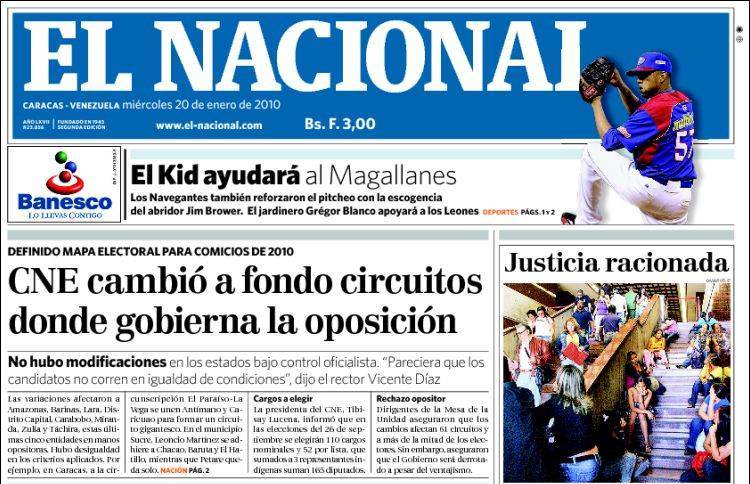
The Inter-American Commission on Human Rights (CIDH) reacted with “profound concern” to the lawsuit filed by the President of the National Assembly, deputy Diosdado Cabello,against the newspapers El Nacional and Tal Cual, and the website LaPatilla.com. It urged national authorities to “cease these acts of harassment that deepen the deterioration of the right to freedom of expression in the country and threaten the media and critical journalists in Venezuela,” particularly in an election year.
The case that Cabello filed against the media, and the judicial decisions that several judges have rendered in it—like the one prohibiting 22 executives of the defendant companies from leaving the country, or the one last week seizing the headquarters of El Nacional—worry the CIDH, a body that is aware of the support that the Supreme Court (TSJ) gave the legislator last May when it described as “lacking foundation” the accusations that he was linked to drug trafficking, as had been reported in Spanish and U.S. media, in stories that were republished in the country by the defendants.
“This current situation is aggravated by a public statement unfavorable to the media outlets, issued by the Supreme Court, the highest judicial authority in Venezuela, about the factsunderlying the complaint, and which would be considered by a lower court. On its website the Court expressed its solidarity with the President of the National Assembly of Venezuela, and without due process ora hearing by the lower court handling the case, advanced its opinion that the disclosure of such information ‘lacking truthfulness carries sanctions under national law,'” said the Commission.
The organization, in a letter also signed by the Rapporteur for Freedom of Expression, Edison Lanza, demanded that the authorities cease their attacks against the media, both verbal and judicial, in order to ensure that the legislative elections scheduled for December 6 are transparent.
“The Commission and the Special Rapporteur consider that in the context of an election year, faced with a reduction of pluralistic news reporting, and diminishing independent media, it is urgent to stop the verbal and judicial harassment that restricts the free flow of ideas and opinions. In this context, the concerted state actions aimed at encircling those media that havean editorial line independent or critical of the government are of special concern to the Commission and, in turn, represent a very significant threat to independent journalism andinvestigation, to freedom of expression, and to the free flow of information publicly available in Venezuela ahead of the elections to be held in December 2015.“
Source: El Universal
Translated by Tomás A.
